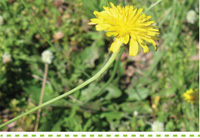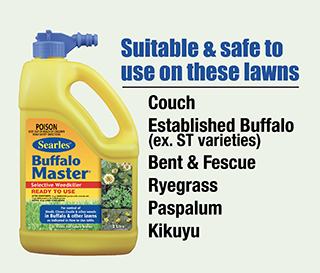What do Catsear and Dandelion look like and how to control it?
(Hypochaeris radicata) False Dandelion
This small weed is often confused with the true English dandelion (Taraxacum officinale). It is often found growing in stoney, or compacted, shallow soil that are low in nutrients. It can often be found popping up within lawns where the lawn has been mown too low or is heavily compacted.
Recognising catsear versus dandelion weed
The difference in distinguishing catsear from true dandelion is that Dandelion will only produce individual flowers on relatively short stems up to thirty centimetres, while catsear will produce tall, slender flower stalks up to eight centimetres that are multi-branched with several small yellow flowers. It produces a small rosette of foliage that usually radiates from the central crown by no more than twenty five centimetres at the base and are slightly hairy to the touch.
How to control catsear and dandelion in lawns
Catsear can successfully be controlled easily by spot spraying with selected herbicides within the heart of the plant or alternatively, can be physically dug up and removed by carefully digging up the deep taproot. Leaving any part of the root will allow a new plant to emerge over time. Catsear usually begins its flowering cycle from mid-spring and can continue until Christmas whereafter, the seeds are wind-dispersed to naturalise in surrounding grasslands and lawn. Avoid mowing lawn too low as healthy, active growing lawn can easily outcompete catsear.
Note: If you have Catsear and Dandelion in Couch, Buffalo (except ST varieties), Paspalum, Bent, Fescue, Kikuyu or ryegrass lawns, Searles Buffalo Master Hose-On is a safe treatment to use.
Click to view our Searles Lawn Weed Control chart for the right lawn weed killer to use for your lawn type.

|

